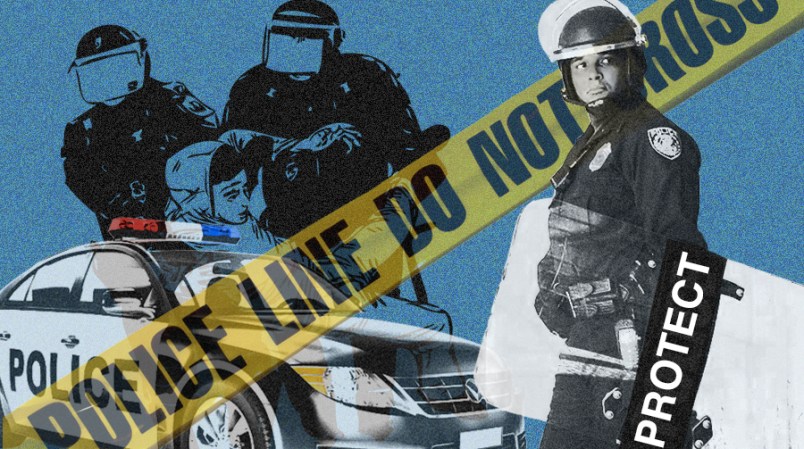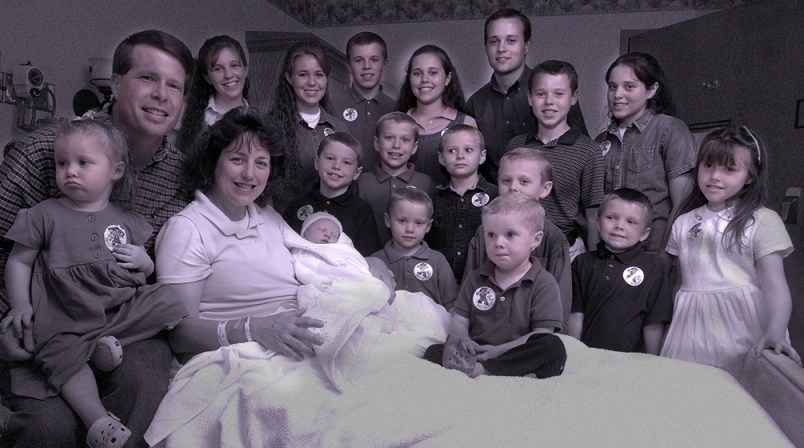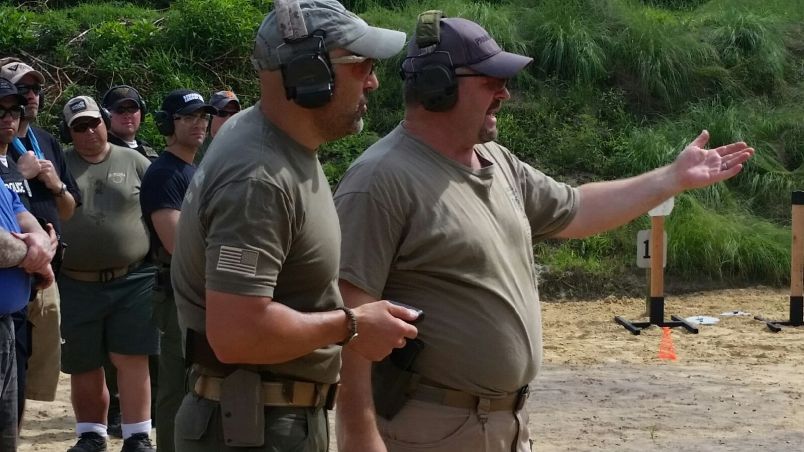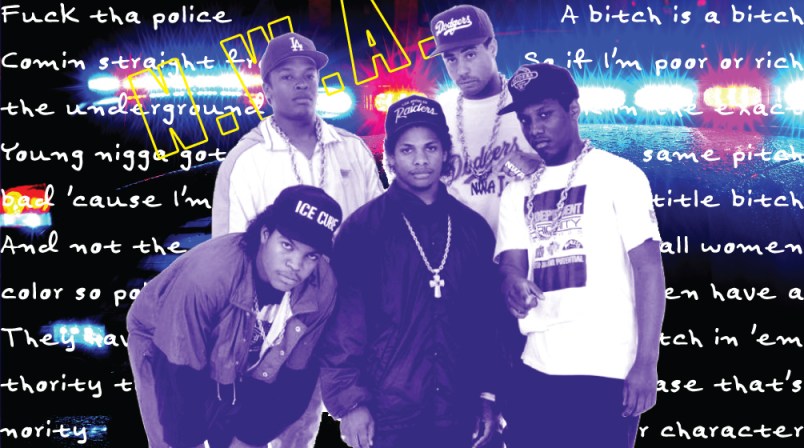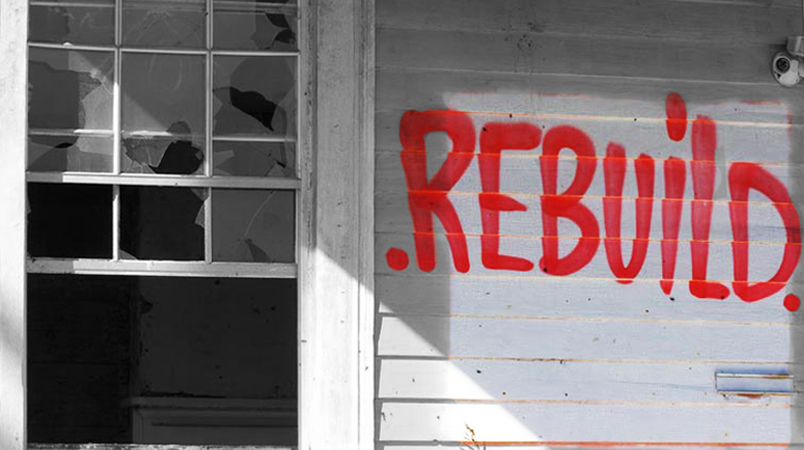I fought the law. In high school I spent many career days listening to job counselors map out my promising future in security, the correctional system, or as a police detective. Enforcement and punishment seemed to them like the perfect choice for a black teen who was all-state athlete, football team captain, and captain of the wrestling team. I was informed I also possessed the superpower of being an articulate black person, which meant I could serve as a role model.
Sorry to let you down, kids. My dad taught at an inner-city school rife with violence and I had family members who are cops. I’d seen the people police have to deal with and I wanted no part of that world. Nope. Never. Girl bye.
But some young, black men decide otherwise, and they’ve been on my mind during a year of highly-publicized police killings of unarmed black men and boys. Ferguson, Missouri. Beavercreek and Cleveland, Ohio. Staten Island, New York. This year, Gallup reported that Americans rank racism as the nation’s top problem. My respect for law enforcement has always been balanced by a low-level anxiety and wariness around individual cops. And the past year did nothing to assuage my fears.
There hasn’t been this much concern about police and race relations since 1992, the year of Rodney King. Back then, America watched the video evidence while they ate their dinner. They could see brutality that seemed to exist simply as batting practice. Simply because it was habit. Simply because cops could and would get away with it. Twenty years later, the evidence is still coming in on camera, tape recordings and in city morgues.
The public debate has always centered around black versus white, police versus civilians. But what about police officers of color, who dwell in the nexus of this fight?
When I began reaching out to black and Hispanic cops, I knew I was going to run into the infamous blue code of silence. The code is simple: Cops don’t talk about other cops. No matter how corrupt an officer may be, most colleagues are reluctant to testify on or off the record. When I contacted multiple police organizations, unions and media officers I hit this wall. Hard. My attempts to engage New York officers on the street were met with cold stares, snickers and dismissive waves. I turned to officers I knew personally; at least they called me back to tell me in no uncertain terms: “No way in hell.”
After this, I did what any modern journalist would do: I turned to social media. I followed an electronic breadcrumb trail that went from friends-of-friends, to cousins, to distant uncles who knew war buddies. The trail went around the country to various officer ranks and precincts, from the most diverse forces to the whitest. One thing was constant: All of them struggled daily to balance their sworn oath with their born identity.

It’s the media trying to sell paper,” Ralph said. “The bigger issue is, why are so many Black and Latino kids involved in violent crimes?’
“Parents,” Stanley said. “Homeboy, you got parents who aren’t doing their job.”
Stanley and Ralph are not their real names. The former is my cousin, who I’ve known as an officer my entire life, and the latter is the brother of a friend. They’ve never met— Stanley works in Ft. Lauderdale and Ralph in Houston—but they have a lot in common. Both are police sergeants with 20-plus years of service. Both are gregarious, bass-voiced, African-American men. And both look upon the recent attention on police shootings with startlingly conservative eyes.
When I asked about stop-and-frisk, Stanley insisted it “helps reduce crime.” When I pointed him to a study that implies otherwise, he brushed it off as an unimportant detail. At the time of our conversations, there were still protests around the country over Staten Island officers choking Eric Garner to death. And Ralph gave the cops the benefit of the doubt.
“Look, it’s very easy to second-guess things, which is a bad habit to pick up if you’re a police officer and have to make quick decisions,” Ralph said. “He was overweight and asthmatic. There’s a good chance that if they would have tasered him, he would have died, anyway.”
I spoke with Ralph as he drove his patrol car through the different wards of Houston. As he scrolled through his bulletin, he noted that every single call he was looking at involved black or Latino people in bad neighborhoods. Then he tells me a story about his first year on the force.
Ralph received a call in the early morning concerning an elderly African-American man standing in the middle of the street with an ax and threatening people. The situation seemed critical. Ralph sped to the Houston’s notorious fifth ward. When Ralph arrived, he approached the man to calm him down. Ralph didn’t see the ax that was lying flat against the floor of the porch.
“It happened really quick,” he recalled, “The guy had that thing we call ‘old man strength’ to him when he picked up the ax and was trying to bring it down on my head.”
Ralph was jammed up against car and his hands were holding the ax, so he couldn’t reach for his gun. He couldn’t reach for the radio to call for help. He just had to hold on. The fight devolved into a wrestling match and eventually a neighbor called the police, who swooped in for the arrest. But the lesson stuck with him.
“You have a split second decision to make and in that moment you’re not thinking about race or age,” Ralph said. “You’re thinking about survival.”
Stanley knows what this is like. He used to be on SWAT. One day on a drug bust, his team rammed opened the door and charged through a living room, guns aimed and ready. A black child lay in the path of the sprinting team of officers. A lightning-fast reaction meant the difference between shooting, trampling or moving the kid. Stanley swooped the kid up and rolled to the ground, ripping the muscles in his own hips and legs in the process. It was the end of his SWAT team career.
I remember the months of Stanley limping around on crutches, the agonizing rehabilitation, and the loneliness. The kid will probably never know this, or about the many other sad stories resulting from cops thinking on their feet. What he will know is his own community’s public perception of cops.
“‘All police ain’t shit,’ ” Ralph said, parroting his neighbors. “Most are grateful, but you do get called Uncle Tom.”
“Sellout,” Stanley offered, along many more insults hurled at him. “Homeboy, we’re all trying to do the best we can. We’re not perfect.”

On Friday, December 19th, a 24-year-old Latino cop who I’ll call “Christopher” graduated from a police academy in upstate New York. The next day, Baltimore resident Ismaaiyl Abdullah Brinsley shot his ex-girlfriend, hopped on a bus to New York City and murdered on-duty officers Rafael Ramos and Wenjian Liu, execution-style in their parked patrol car.
“It was a big shocker,” said Christopher, who is the third generation in his family to work in law enforcement. “Everyone was telling me to be careful. The world ain’t what it used to be. I’m not saying people should be afraid of the cops. It was really a tough time.”

I remember the murder rippling across the country in a matter of minutes. I was pacing around my parent’s livingroom in Miami. I was on winter break from Juilliard and hashing out a few new theatre pieces when I saw the breaking news flash across the screen.
“Two police officers have been shot!” I yelled to my mom in the next room. “Countdown to Monday when the right-wing leaders will turn this around and use their deaths to bash protestors and New York Mayor Bill De Blasio.”
I was wrong. There was no weekend pause. The politicization of their deaths was instantaneous. Within the hour, the blame was being passed around to President Obama, De Blasio, Attorney General Eric Holder and Al Sharpton. Everyone seemed to be at fault except for the actual killer. Leading the hysterical political charge was the president of Patrolmen’s Benevolent Association, Pat Lynch.
Every officer of color I spoke to both on and off the record held Lynch in low regard. They tossed around phrases like “clown” and “political opportunist.”
“He was an idiot then and he’s still an idiot” is how one retired officer put it.
“I think the arguments between the mayor and [Lynch] is like watching two girls fighting,” another office said.
In my unofficial poll, the feelings toward the union president seemed to rank somewhere between Al Sharpton and Ebola. Still, and almost in defiance of the demoralization by media, politicians, protestors and even their own union’s dysfunction, most cops insisted no one—especially minorities—signs up to do harm.
“I wanted to make change,” Christopher said. “I went to college, I invested time into myself to be better and make change. It wasn’t my passion to become a cop. But I want to change the stereotype that all Hispanics are nothing. And I thought, ‘let me do something different.’”
As our conversation progressed, the blue code of silence took over. Nervous laughter about aliases turned to concern about identifying information. Eventually, my followup questions went unreturned. Our final exchanges ended on a series of awkward notes.
“When Eric Garner fell to the ground—“ Christopher began.
“He didn’t fall,” I replied quickly. “He was forced and choked to the ground. He had cops piling on top of him.”
Both of us are taken aback by my outburst.

Not every cop of color walks on eggshells. Officers Adhyl Polanco and David Wright were the only ones willing to speak on record, because according to them, they have nothing left to lose. Polanco, who is of Dominican descent, has been ostracized already. Wright, who is black, is retired. Both are brash, native New Yorkers unwilling to stay quiet.
Wright, 63, was an NYPD officer from 1974 to 1996. Over two decades, he served as everything from a beat officer to anti-crime plainclothes to an officer in the Narcotics Division. Before I could even get my computer out, Wright launched into his opinion on post-Ferguson America.
“Law enforcement hasn’t changed in 2,000 years,” he said. “If you’re in this business, you’re a part of a paramilitary organization. And this organization is run by the politics of the region you’re in. The politics of cops in New York City and most of the country is different from those of black men.”

He told me being a former cop doesn’t shield him from the same racial profiling that plagues the black community. A few years ago, Wright and two of his friends, both older and African-American, were standing in front of his own house. The white police officer who walked up to them ordered them off the sidewalk. When Wright asked for the officer’s badge number and name, he was given a summons for “congregating.”
“There is no such law in the penal court,” he said. “It was a hot mess. And he couldn’t even spell ‘congregate.’”
Wright fought the charges in court before they were dismissed, then went after the officer who wrote the summons and his supervisor. In the end, Wright hit the officer where he knew it would hurt: five days of paid vacation docked.
Polanco, 34, gained notoriety for being one of the main whistleblowers against former Mayor Michael Bloomberg and former Police Commissioner Ray Kelly for their stop-and-frisk’ policy. By tape-recording his South Bronx precinct captain giving discriminatory orders on how officers should enforce stop-and-frisk, he provided key evidence for the policy’s judicial demise. Polanco and Officer Pedro Serrano’s outspoken stance turned them into pariahs within the NYPD. Suspended and transferred multiple times, Polanco has been exiled into a quiet and isolated precinct in Brooklyn.
“When we enforce bad policies, it affects the cop next to me and the cop 10 years after me,” Polanco said. “Not every cop is out there trying to do bad, but when you have bad policies where every cop has to bring in quotas, you’re going to have officers who do it against their will.”
Polanco said that within the NYPD, racism not only prevents equal enforcement of laws but demoralizes both the community and officers of color.
“‘Animals’ is a very often used word inside the precinct when it comes to addressing minorities,” he said. “‘Look at these animals, look at these savages.’ And sometimes you see black and Hispanic officers talking like that about their own people. My mom still lives in the hood. And we’re not animals.“
But if racism and inequality is so insidious, why haven’t more people spoken out after Ferguson and Eric Garner? The blue wall of silence is incredibly effective, even against Black and Latino officers whose communities endure systemic violence and racial bias.
“It’s the culture of the police department,” Polanco said. “Cops are scared of cops. If I say something I might not fit in with the gang. That culture still doesn’t want us in there. They think we’re little monkeys running around. They’d rather hire the kids from Long Island and upstate New York than people from their own community.”
Wright echoed Polanco’s statement so closely—down to groaning about cops from Long Island and Westchester—that I burst into laughter. Wright chuckled along with me. “But it’s true!”
Our chorus of sad and angry laughter echoed through my head as I took notes— disbelieving laughter at how far we still had to go, but hope for how far we have come. (I was sitting in the student lounge at Juilliard, after all). The system was racist, yes, but after hearing officers describe their jobs, I realized the very nature of their profession is one of infuriating contradictions and compromises. Regardless of color, to be an American cop means being both powerful enough to take someone’s life, and powerless to change the societal systems that breed crime and fear.
“You can’t fix anything. You don’t have an answer. You have a mandate,” said Wright. “The ritual of doing the job”—seeing people at their worst, barking orders at them— “makes you disconnect from yourself and the world…It only takes three to five years for your humanity to be gone.”
Aurin Squire is a freelance journalist who lives in New York City. In addition to being a playwriting fellow at The Juilliard School, he has writing commissions and residencies at the Dramatists Guild of America, Brooklyn Arts Exchange, and National Black Theatre.





